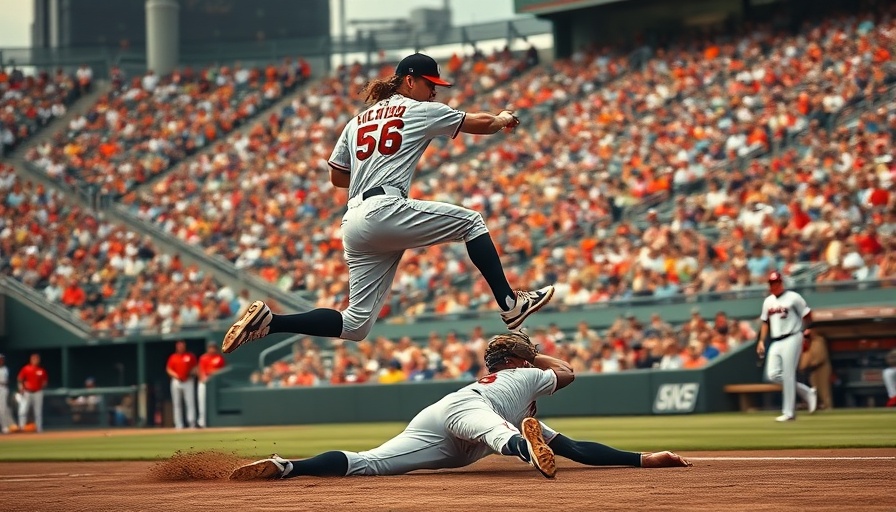
Rafael Devers and John Henry's Heated Dialogue: What It Really Means
In the world of baseball, there are often unsaid tensions lurking behind the scenes, even in the most 'productive' meetings. This past Friday, a noteworthy encounter unfolded between the Boston Red Sox owner John Henry and upset designated hitter Rafael Devers in Kansas City; however, fans are left wondering what, if anything, truly changed as a result.
The Unwillingness to Transition: A Sticky Situation
After a challenging few weeks handling injuries and position changes, Henry's concern for the team's performance was evident. Devers, adamant about remaining at DH, has deemed moving to first base a risk not worth taking, especially with young power hitters like Triston Casas out of the lineup. Manager Alex Cora noted, "He’s DH’ing today,” the day after the meeting, indicating that despite Henry's interventions, no definitive resolutions were made. This stubbornness places the Red Sox in a precarious position as they scramble to find a lineup that compensates for injuries while balancing player attitudes.
Impacts on Team Dynamics and Performance
The standoff between Devers and the team’s leadership raises important questions about the dynamics of modern sports teams. The Red Sox have been known for their collaborative spirit, but when a star player refuses to budge on a significant positional change, it can undermine team cohesion. Manager Cora has expressed that they will continue to hold discussions with Devers, highlighting the ongoing need to address not just the practical considerations of player positions, but the emotional ones as well. Meanwhile, the Sox’s reliance on utility players like Nick Sogard and Abraham Toro to fill positions could strain the team’s overall performance.
Historical Context: The Evolution of Player Roles in MLB
Historically, players have often transitioned between positions. Legends like Miguel Cabrera and Albert Pujols successfully adapted to new roles to prolong their careers and benefit their teams. In contrast, Devers' refusal to switch poses a question about the evolution of player versatility in Major League Baseball. This tension between tradition and contemporary demands highlights how modern contracts and player agencies have shifted the power dynamics within teams.
The Road Ahead: What’s Next for Devers and the Red Sox?
As the Red Sox prepare to face formidable left-handed pitchers in upcoming games, the importance of an adaptable lineup cannot be overstated. For Devers, this is not just a moment of discomfort, but a career-defining decision that could influence his trajectory with the organization. Fans are left speculating: will the events of the last few days prompt a change of heart from Devers, or will he maintain his stance? Moreover, can the team rally behind alternative strategies while they await Devers' decision?
Final Thoughts: The Balance Between Individual Dynamics and Team Goals
Ultimately, the recent meeting signals not just a moment of negotiation but also reflects the broader challenges teams face in balancing star athlete desires with organizational needs. As the Red Sox navigate this complex territory, it is clear that open communication and understanding will be crucial for future success. With both fans and analysts watching closely, the decisions made in the coming days could shape not just the team's lineup but its identity going forward.
In reflecting on this meeting, we are reminded that baseball is as much about interpersonal relationships and emotional resilience as it is about strategy and skills. Perhaps now more than ever, engaging with the nuances of player dynamics is essential to understanding the game.
 Add Row
Add Row  Add
Add 




Write A Comment